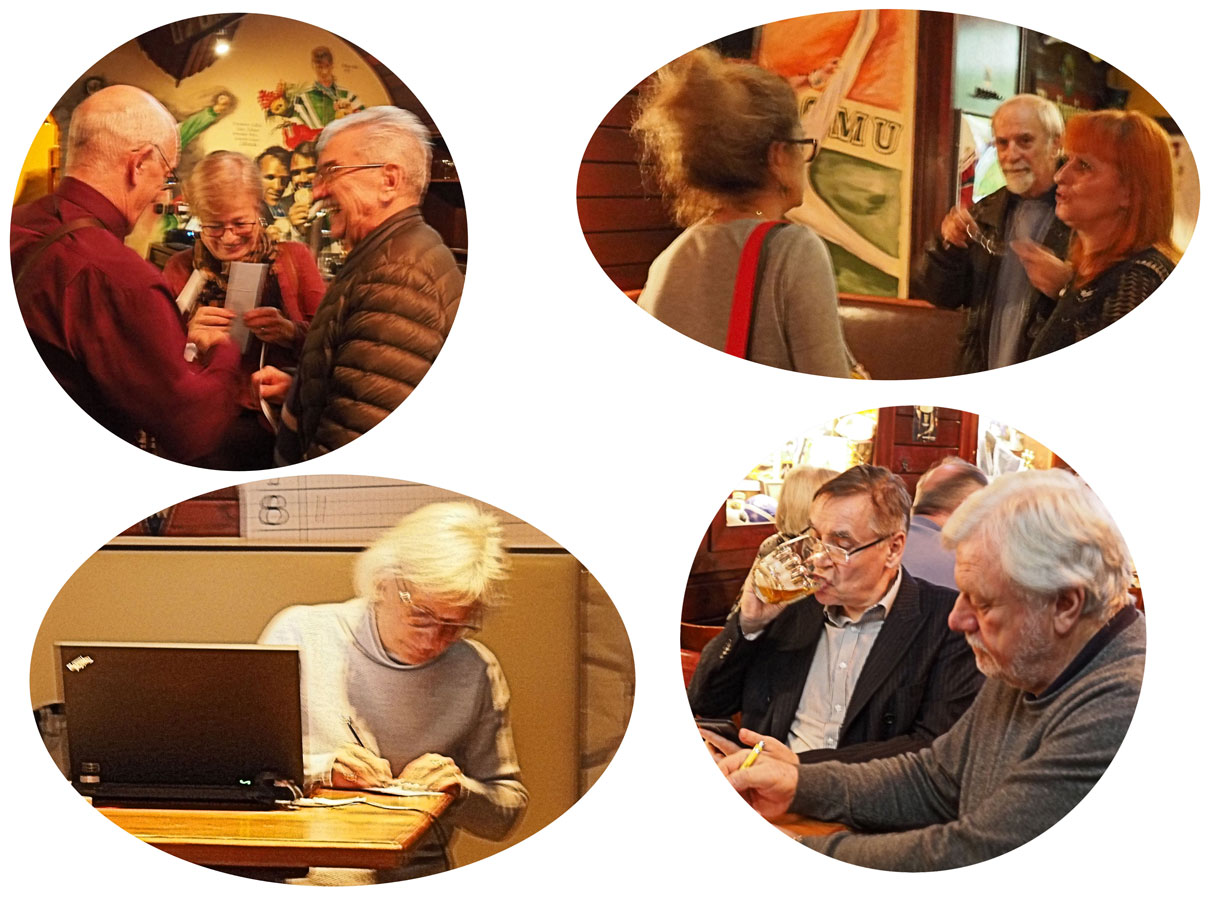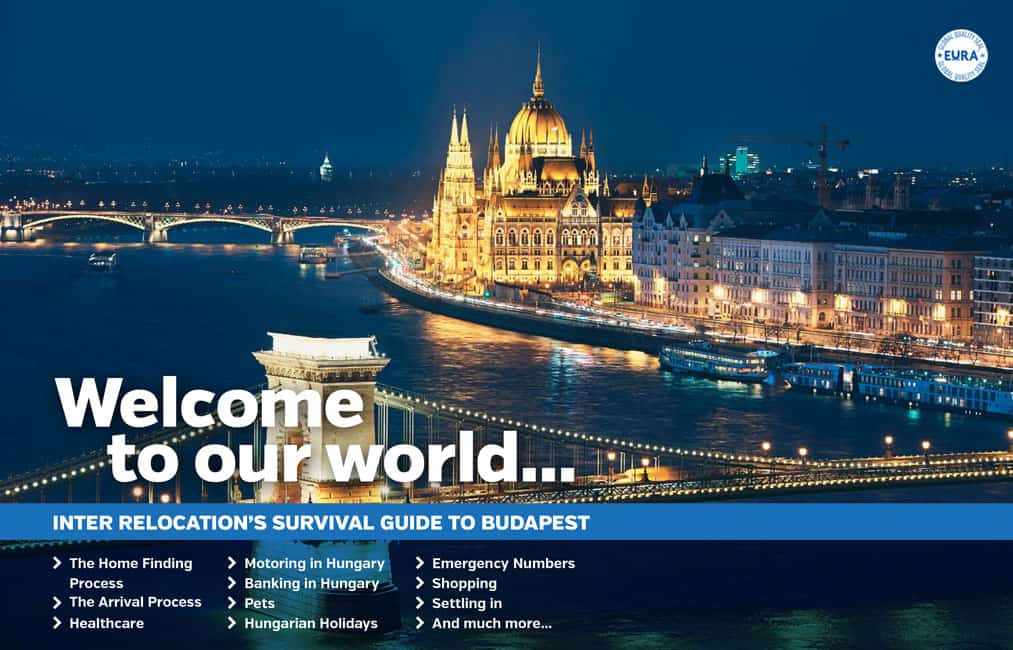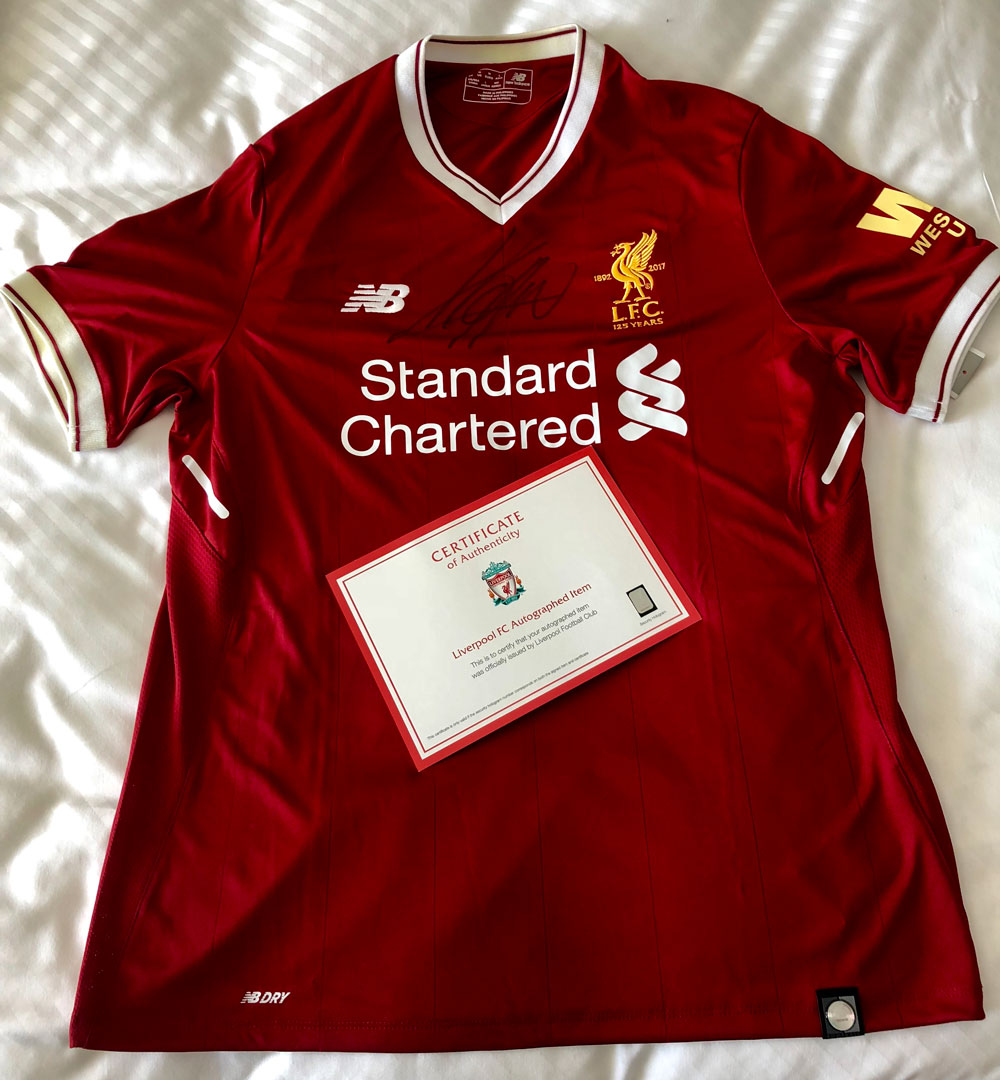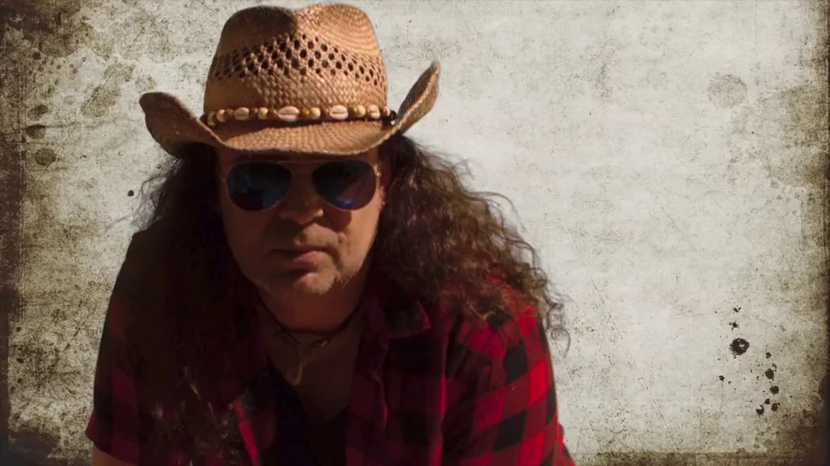The cost of living in Hungary and more specifically Budapest, is something many expatriates research before taking the plunge and relocating. We present our updated information, based on April 2019 data.
As with a move to any new country, there are many things you need to know about living in Budapest. The internet has a variety of guides for the budding expat and the sponsors of this publication, Inter Relocation, also offer a wide range of services for the inbound foreigner. It would be difficult to get into too much detail here about all the things you need to know, but we’ll try and touch on a few of the basic areas, just to give you an idea of what to expect. All costs and other information are current as of April 2019.
CONTENT
General Information
Budapest is home to approximately 1.75 million people in an area of 525.2 km², larger than Bucharest, Vienna or Prague. The life expectancy of Budapest residents is on average 76 years. There are roughly 52% females and 48% males.
Since the regime change in the early 1990s, there has been a growing number of expat communities in Budapest. Depending on your country of origin, you will very likely find expats from your own country to meet.
Living in Budapest is not the same as living in Bristol, England, or Boston, Massachusetts (USA). You will have an obvious advantage if you speak Hungarian, although these days in Budapest it is possible to get most things done without the need to speak the local language. English is widely spoken in shops, bars and restaurants, although far less so in administrative offices, the post office and so on.
Hungarian Currency
Even after joining the European Union, Hungary decided to continue to use its own currency, the Hungarian Forint, written as “Ft” or HUF. Some international shops and real estate agencies might also list their prices in Euro, but watch out for the exchange rate. An easy-to-remember rule is that, as of April 2019, 1,000 HUF is roughly the equivalent of around 3 Euro or $3.50 US dollars or 2.7 British Pounds.
Although most places accept international credit and debit cards, it’s always good to have some cash on you. If you need to buy tickets for public transport, for example, the 20,000 HUF note might be too big so if you can, break the note at a shop before you travel.
In addition to the cash exchange booths scattered throughout the city, there are many ATMs around Budapest, some of which dispense Euro notes alongside the local currency.
Infrastructure in Budapest
Local infrastructure in Budapest is truly fantastic, at least when all the metro lines are fully operational. You most certainly don’t need a car in the city if you feel you don’t want one. In fact, it can be quite inconvenient to own a car here, as you may have to pay for parking, which is around 22,000 – 50,000 HUF per month, depending on your location. It may be possible to obtain a parking permit for the district in which you live. Different districts have different requirements, so in some cases you may only be able to get a parking permit if you own the car and the apartment. If you do decide to buy a car in Hungary, the full insurance and related costs (road tax) shouldn’t be more than 75,000 HUF per year.
Public Transport
Buses, trains, trams, trolleys and the four metro lines are all reliable and run on time. The government is slowly but surely upgrading the city’s metro system and even the stations that look outdated are generally safe. A monthly BKV pass for all modes of transport runs 9,500 HUF, something that continues to contribute to the low cost of living in Budapest. But fundamentally Budapest is a walker’s city. It’s a good way to save some money, exercise and stay fit. Many expats walk everywhere and enjoy the feeling of freedom and exploration they get while strolling down the city’s boulevards and side streets. If you do need a car, rentals are available at reasonable rates. In recent years, the city has also installed the Budapest Bicycle system (BuBi) to help people get around even faster.
You can also take taxis if you need to go out and want to drink (Hungary has a zero tolerance drinking-and-driving policy). Tram 4/6 runs 24/7 and covers most of central Budapest, if you need to rely on public transport to get home in the wee hours of the morning. Just note that the controllers even check tickets during the night, so be sure to have your ticket or pass on you at all times.
Budapest Accommodation
Finding a flat in Budapest these days might not be as easy as it once was. The high demand for rentals has pushed prices up to where accommodations are now often comparable to other Central European cities. This has been the main factor in increasing the overall cost of living in Budapest in the last 4-5 years.
No longer is there a wide range of apartments for a low price. The best and easiest way to find a flat is to contact several real estate agents who will help you locate what you want. The agent gets his/her commission from the owner; as a result, most owners are only willing to rent long term, so expect to sign a contract for at least one year.
Another option is to join a few Facebook Groups for expats where you can find daily rental offers. Search for “rent in Budapest” and you will find several really good groups. Join them and check them daily. You can then message the estate agent or owner directly. Send them a list of all your requirements and they will send you recommendations.
Finally you may wish to choose to find your home using a relocation services provider like Inter Relocation. Such firms do charge a fee for their time and expertise but are also paid to represent you as the tenant, find the right property from the entire local marketplace, negotiate the best deal for you and ensure that the lease agreement protects your legal rights. You can learn more about this process in this handy guide to relocating to Hungary.
If you haven’t already arranged for a flat, it’s easy these days to rent an Airbnb when you arrive and start searching for your permanent living space.
The cost of living in Budapest
OK, now for the most important item: money! Budapest has long had a reputation for being an affordable city, but beware! Budapest is not all that cheap any longer. However, Budapest still has an almost 55% lower cost of living than New York City, USA. In general, a single person can live reasonably in Budapest for around 175,000 HUF per month, not including rent.
A two-bedroom apartment in a central location and good condition starts around 240,000 HUF. The better the location, the newer the appliances and the larger space, the more you can expect to pay. In the advertisements, normally all the costs are clearly stated, though keep in mind that many rents are advertised assuming a cash payment. If you ask for an invoice so you can claim it back from your employer, expect to pay more.
“Common cost”
One unusual extra item is the “common cost”. Depending on the building, it’s typically 130-180 HUF/m2/month if water is not included and 200-250 HUF/m2/month if it is. This covers the bin collection and recycling and also the cleaning and the electricity in the common areas. The newer or higher rent blocks usually have higher common costs. For example, a flat in the beautiful Avenue Gardens on Andrássy Boulevard has a monthly common cost of around 48,000 HUF! However, this cost includes access to a 24/7 concierge service, spa, pool and gym.
When you view a flat, make sure to double check all the costs involved before you commit to renting it.
On top of the rent and common cost, you will almost always have to pay for your own electricity, gas and water (water is sometimes included in the common cost). These are separate bills given to you by the landlord or the agency. Expect anywhere from 30,000 HUF to 50,000 HUF per month for a 50m2 apartment. Winter gas heating costs alone can sometimes hit 30,000 HUF per month.
When you move in, you usually need to put down two months deposit and one month rent in advance. Make sure you check everything when you move in and adjust your contract as needed. Take pictures of the flat and appliances for when you check out, to give you a stronger chance of getting your deposit back.
Grocery Markets
Budapest has a wide variety of local markets, small shops and large supermarkets. If you have a car, you can drive to the outskirts and shop in hypermarkets. Alternatively, pretty much all districts have their own market (piac, in Hungarian), which is a good way to support the local community and get cheaper, fresher produce. Average food costs will probably run around 16,000-25,000 HUF for two people for a week.
Eating Out
The alternative to dining at home, of course, is taking advantage of the many, many wonderful restaurants, cafes, bistros and bars in the city. Avoid main touristy places, as a set “traditional” menu can be around 6,000 HUF per person. Smaller restaurants will run you about 3600 HUF for a three-course meal for two people. That’s 1800 HUF per person for a delicious soup, main and a cake!
Bars are also still pretty cheap, with beers costing from 700 HUF on average for a large glass. Of course, if you buy them from the supermarket, prices will be significantly lower. Hungarian sparkling wine costs starts at around 1,100 HUF per bottle and a good bottle of wine starts from as little 1,500 HUF.
There are lots of bakeries scattered throughout Budapest, so you can buy fresh bread every day. You can find almost any variety of bread, ranging from the usual sliced white bread to the special whole grain loaves. There are also lots of Hungarian treats, like the amazing Budapest lángos, pastries and cakes. A slice of vegan cake in the city center will cost around 1,000 HUF, but the more central you go, the higher the prices.
Clothing
Clothes and shoes cost roughly the same in Budapest as in pretty much any other capital city in Europe. As with most cities, there are a few expensive streets lined with large international shops and boutiques. A pair of jeans will set you back around 20-30,000 HUF and some nice Nike running shoes will start from around 20,000 HUF.
Health Insurance and Dental Care
Health insurance for you and your family will probably start around 10,000 HUF/month/person. If you are an EU citizen, make sure you order your free EHIC (European Health Insurance Card), which covers you for emergency treatment and carry it with you at all times. If you work in Hungary your social security contributions will allow you access to the state healthcare system. This is functional but there can be language issues.
An alternative is to pay as you go for private medical treatments. An acquaintance recently needed a knee MRI and paid around 45,000 HUF. A consultation with a doctor was around 15,000 HUF per session and blood tests were 16,000 HUF; not too bad, considering it was all private, with no insurance.
Private healthcare in Hungary is on the rise and there are several options for a private healthcare package, which is pretty reasonable by international standards.
Hungarian dental care is world-class and so popular and reasonably priced that there is still a large market in dental tourism from the UK, Ireland and elsewhere. Basically, find a dentist you like and you’re set for the duration.








